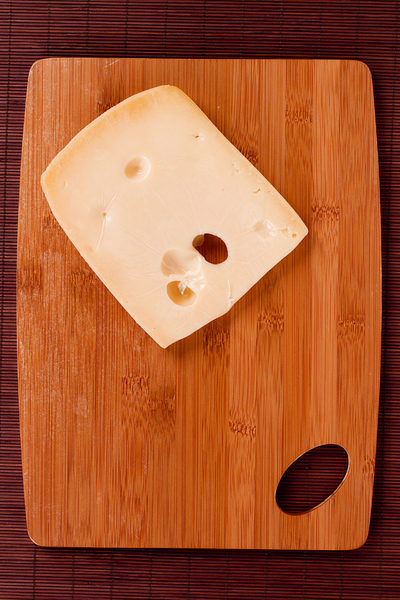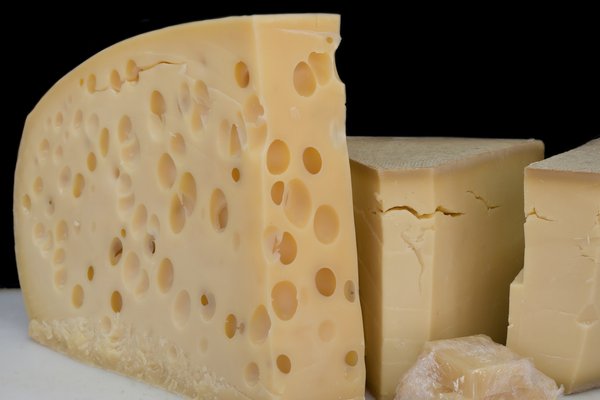Butter cheese

What is butter cheese?
Butter cheese is a semi-soft semi-hard cheese. This means that it has a firm structure but is not as hard as hard cheese. It is easy to slice or melt and has a yellowish color. Butter cheese owes its name to its buttery taste and soft consistency.
Butter cheese is made from pasteurized or unpasteurized cow's milk. The milk is coagulated with rennet enzyme, i.e. it curdles and forms lumps. These are then separated from the whey and pressed into molds. The cheese is then placed in a salt solution, which gives it flavor and shelf life. It is then matured at a certain temperature and humidity.
Butter cheese is available in different fat content levels, usually between 30% and 60% fat in the dry matter. The higher the fat content, the softer and tastier the cheese.
Benefits of butter cheese for dogs
Can I give my dog butter cheese? The answer is yes, but only in moderation. Butter cheese contains some nutrients that are important for dogs, such as
- Protein: it helps build muscle and tissue.
- Calcium: Strengthens bones and teeth.
- Vitamin A: Supports vision and the immune system.
- Vitamin B12: Supports nerve function.
Butter cheese can also be used as a treat, reward or as an ingredient in homemade dog food. Many dogs like the mild taste of butter cheese.
Disadvantages of butter cheese for dogs
Although butter cheese has some advantages for dogs, it should not be fed too often or too much. Because butter cheese also has some disadvantages:
- Calories: Butter cheese has a lot of calories and can lead to obesity.
- Lactose: Some dogs do not tolerate dairy products well and can develop diarrhea or flatulence.
- Salt: Too much salt can increase blood pressure or lead to water retention.
- Allergies: Some dogs are allergic to milk protein or other components of cheese.
Therefore, only give your dog small amounts of butter cheese (no more than 10 g per day) and observe how he reacts to it.
Butter cheese is a tasty cheese snack for you - but also for your dog? Yes - as long as you don't overdo it! In small quantities, butter cheese can be a good addition to your dog's diet. It provides him with protein, calcium and vitamins. However, make sure that your dog is not lactose intolerant or allergic - otherwise it could be bad for him!
Properties 6
Are you looking for other ingredients with a specific property?
Just click on them to find more.
If you notice any signs of hypersensitivity or poisoning in your dog, you should see your vet immediately. We are not a substitute for a vet, but we try to be as accurate as possible. Every dog reacts differently and we recommend you get a second opinion or consult your vet if in doubt.
Stay healthy and take good care of your four-legged friend!😊
Similar to Butter cheese
Gouda is a semi-soft semi-hard cheese from the Netherlands. It is made from pasteurized or raw cow's milk with the addition of rennet and lactic acid bacteria. The cheese mass is pressed into molds...
Cheese can be a tasty treat for dogs that also has health benefits. Edam cheese contains a lot of protein, which is important for muscle building and cell regeneration. It also provides calcium,...
Tilsiter is a cheese that originally comes from East Prussia. It was invented in the 19th century by Swiss cheesemakers who were working in Prussia and improving the art of cheesemaking there. They...
Havarti was invented in the middle of the 19th century by the farmer Hanne Nielsen, who named it after her farm Havartigården. Havarti is one of the best-known Danish cheese specialties and enjoys the...



